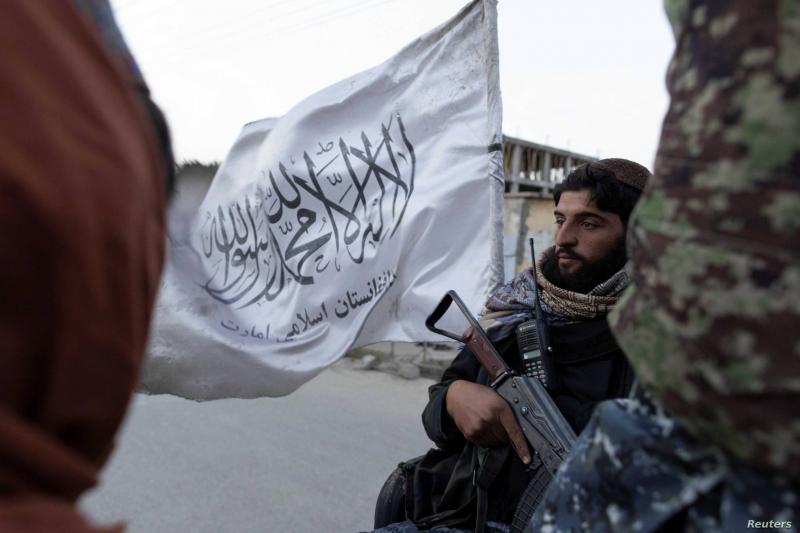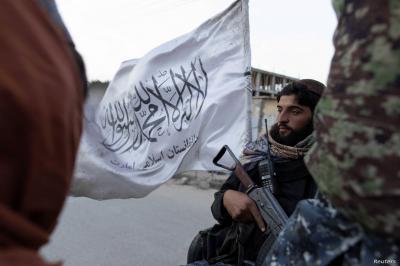The American newspaper "The Washington Post" described a Hazarah Shia official in the Taliban movement as a "gift from heaven" for the Islamic group that has controlled Afghanistan since mid-August. The newspaper reported that the hardliners appointed the 33-year-old Mahdi Mujahid as the head of intelligence in Bamyan province, which has a Hazarah Shiite majority to which Mahdi belongs. Mahdi, who has been given the title Mowla by the Taliban, stated, "I am a bridge between the Taliban and the Hazarah community."
Bilal Karimi, the Taliban's deputy spokesman, said, "Mowla Mahdi follows the orders and rules of the Islamic Emirate. The people are very happy with him due to his service. He is a very loyal person." When the Taliban first came to power in the mid-1990s, the Hazarah faced killings and kidnappings, along with the destruction of their heritage sites, forcing many to flee to Iran, according to the newspaper.
The Taliban's treatment of the Hazarah minority in its new rule is a key measure to assess the truth of the group's claim that it has changed since its previous rule and deserves international recognition and material support. In addition to establishing courts specifically for Shiites, the appointment of Mowla Mahdi as a Taliban official and his dispatch to Hazarah areas serve the group's aim to attract support from minorities, according to the American newspaper. Mowla Mahdi stated, "This new Islamic Emirate is not like the old Emirate."
In line with this, Afghan researcher focusing on the Hazarah community, Ali Adili, remarked, "He is not the kind of national figure that would appeal to the Hazarah community." The researcher, who recently fled to Northern Virginia, added, "He is also an uneducated young man." Furthermore, leaders and analysts stated that the Taliban has yet to properly address or punish any of its fighters or loyalists for crimes committed against the Hazarah since returning to power. In this regard, Taliban expert at the Overseas Development Institute, Ashley Jackson, said, "It could have sent a much stronger message." She added, "Accountability is more beneficial for people. These are public relations efforts... it all seems like a cosmetic attempt."
### "Consider Me a Traitor"
Mahdi was born in a small village called Hosh in Northern Afghanistan and was 8 years old when the Taliban seized Kabul in 1996. Three years later, the Taliban bombed his area in Balkhab, forcing his family to flee to Iran like many other Hazarah minorities, before returning after the Taliban was ousted in 2001. Mahdi enrolled in school and seemed ready to work on his family farm, but a "corrupt" local leader seized the family's land, according to Mahdi.
The "Washington Post" confirms that in response, Mahdi and his friends kidnapped the leader's son. After local elders intervened, the leader returned the land, and Mahdi released his son. That night, clashes erupted outside Mahdi's home in which he was injured while trying to escape from forces surrounding the house before being taken to the hospital. Later, Mahdi was imprisoned for 7 years, where he first met Taliban fighters inside the prison, as he studied the Quran and prayed with the militants five times a day. Salman Akhlaghi, a childhood friend, said, "He met with Taliban Mullahs inside the prison. When he was released, I saw a big change in his behavior and in his body."
Mahdi worked to encourage Hazarah individuals to join the Taliban and spoke out against the U.S. military and the previous government. Mowla Mahdi stated, "The Shias have seen us through a dark lens. Even my immediate community considered me a traitor." On the other hand, the Hazarah cleric Ibrahim Salehi said, "In every community, there are people who work for the Taliban to earn a living. Their lives may have been in danger if they did not support the Taliban."




